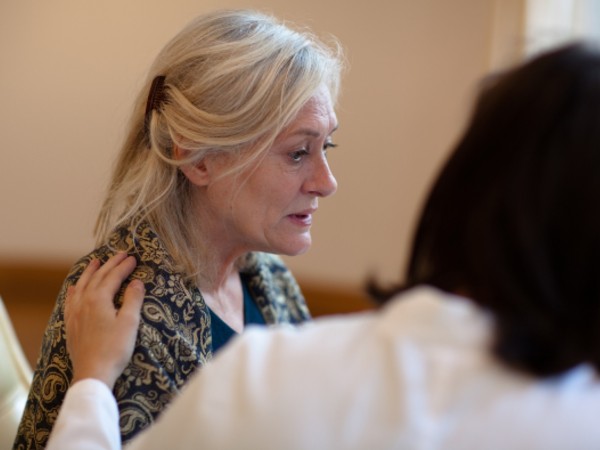As a geriatrician, Carle’s Shukti Ghulyani, MD, knows the benefits of dementia screening for patients 65 and older. Unfortunately, she also knows the most common barriers to that screening actually taking place.
 First and foremost, the onset of dementia is incredibly subtle to see. Dr. Ghulyani, though, believes offsetting this problem is possible. It just takes family members, friends or loved ones focused on one thing: short-term memory loss.
First and foremost, the onset of dementia is incredibly subtle to see. Dr. Ghulyani, though, believes offsetting this problem is possible. It just takes family members, friends or loved ones focused on one thing: short-term memory loss.
Second, among family members or caregivers often find it easier to believe memory loss is a sign of aging. Or everyone might live too distant to understand and acknowledge the subtle changes occurring.
The solution, according to Dr. Ghulyani – especially as families soon gather again for the holidays – is to request a dementia screening once per year from a primary care provider.
“A constant look for dementia in our aging population is best done through dementia screening, because its root cause starts so subtly,” she said. “Of course, we also encourage any caregiver or family member to pay attention to short-term memory loss, too.
“A tell-tale sign is if your father can explain something you did as a baby 30 years ago but can’t explain something he did in the kitchen two minutes ago.”
Whether you see the signs yourself or wish to recommend consistent dementia screening to someone you know, here are a few more things to know from Dr. Ghulyani:
Q: How does the screening process unfold?
A: The first test is so simple. It’s three questions and takes one minute. This takes place with the primary care team, which could include a certified medical assistant (CMA), licensed practical nurse (LMN) or an Accountable Care Organization (ACO) nurse.
If the baseline test presents something or we want to look further into, we’ll provide one of two tests – either the Mini Mental State Examination (MMSE) or the Saint Louis University Mental Status exam (SLUMS). Each takes about five or six minutes.
If that exam reveals or fails to reveal in very early onset, we’ll refer the patient to Carle Neuroscience Institute for a neuropsychology exam. After this is recommended to see Neurologist Dr. Daniel Llano, MD, PhD, revered for his knowledge in this area.
Q: When should patients receive dementia screening, and how do they or caregivers request a screening?
A: Medicare actually suggests patients receive dementia screening on a consistent, yearly basis if they are over 65 years of age.
And it’s very simple to request one. Ask your primary care provider or your doctor’s staff when you have a regularly scheduled appointment. These appointments can include screening before the patient leaves that day.
Q: Obviously dementia impacts a person's memory, but does it have other affects?
A: Another thing to remember about dementia is it doesn’t only affect memory; it can also affect mood. This raises questions from loved ones. Is it a mood problem? Is it depression?
At its root, the problem is dementia. Studies show this is another reason it’s better to do dementia screening early. This helps the patient and caregivers deal with any logistics behind the care needed and settle on a plan to progress through the problem.
It also gives medicinal treatment a better chance at improving quality of life.
Q: What kind of improvements can occur through early diagnosis and proper medication?
A: In my experience, I’ve seen some patients definitely benefit from early medications. The full effect of dementia can often cause a quick downfall. But with early medications, I’ve seen small portion of patients live with a high quality of life for a longer span of time. Without it, dementia may cause more issues in five to 10 years. With early medication, patients can have chance of trying possible best benefit from them.
Q: What medication benefits dementia patients?
A: There are two classes of medications. The most famous one are Donepezil and Memantine.
Q: How do you describe the benefits of dementia screening?
A: Primarily, the best aspect of dementia screening is early diagnosis and improved quality of life over a longer span of time.
During the work up for the cause of memory problem your provider may look for the treatable conditions like obstructive sleep apnea where patient cannot retain the information due to poor focus. These patients are referred to the Sleep Clinic.
Another common treatable problem is Vitamin B12 deficiency. The deficiency of this vitamin gives dementia and depression. The replacement of vitamin it the treatment.
Another common treatable problem is hypothyroidism and replacement of thyroid hormone helps very well.
Another problem can be hydrocephalus. These patients experience problems like gait disturbance, bladder control and memory issues. The condition need further consultation.
It is important to know that depression can present as memory problem. The treatment of depression helps with complaint of memory problem.
Categories: Staying Healthy
Tags: Neuroscience
